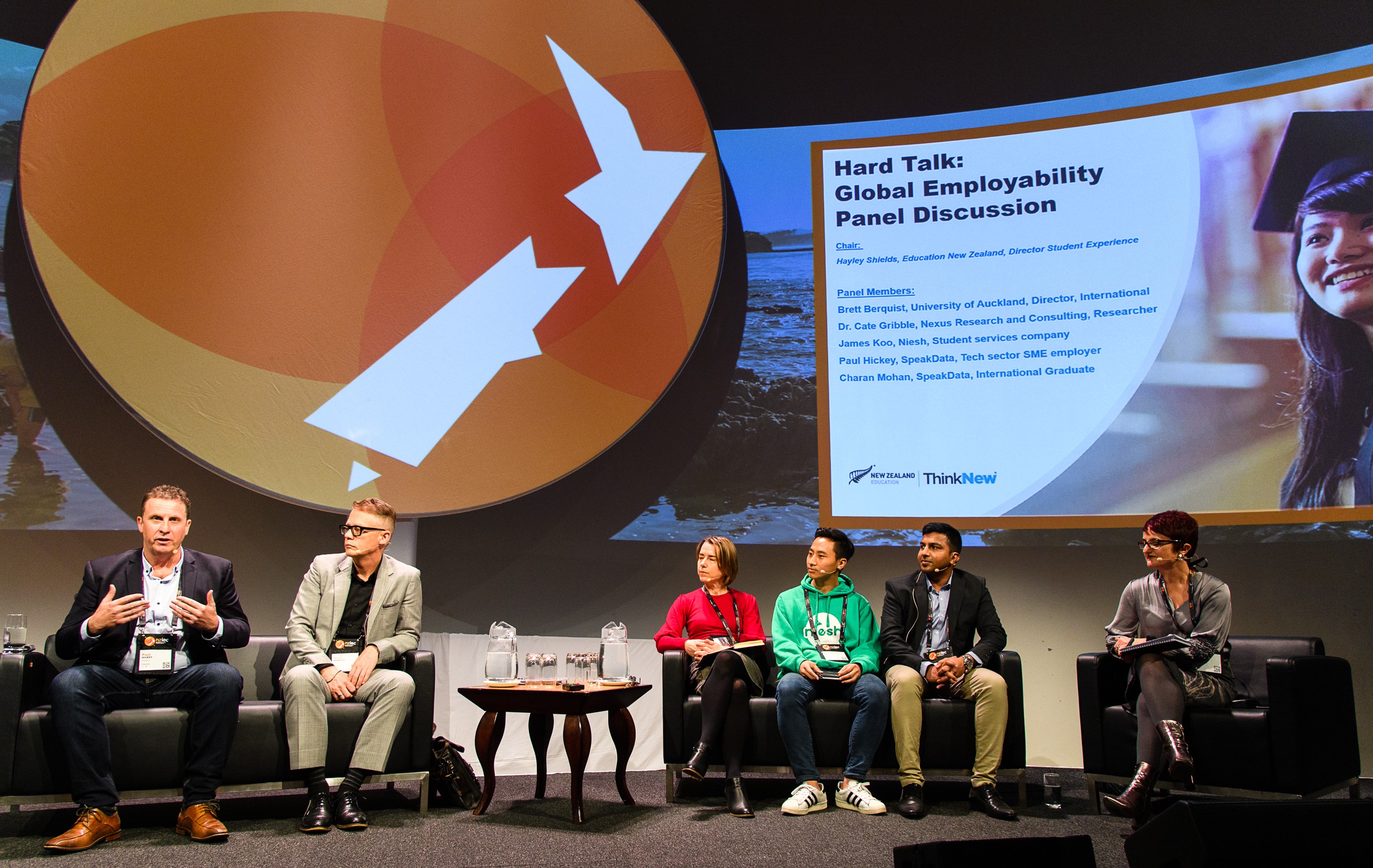12 September 2018 at 9:00 am
International student employment: overcoming barriers
Educating employers on the value of international students, more internships and the need for a ‘Kiwi story’ – these were some of the suggestions from the Hard Talk: Global Employability panel discussion at NZIEC 2018.

The panel, chaired by ENZ’s Director Student Experience, Hayley Shields, featured a diverse and informed range of views from
- Brett Berquist, Director International at the University of Auckland
- Dr Cate Gribble, Senior Research Analyst at the University of Auckland
- James Koo, former international student and founder and CEO of Niesh, a free student discounts app
- Paul Hickey, Managing Director at SpeakData
- Charan Mohan, former international student and now Business Intelligence Analyst at SpeakData.
Dr Cate Gribble talked about the need to raise awareness of the benefits to businesses of employing international students to counter employer concerns around the challenges of international student employees, including perceptions they won’t fit culturally, their English will be limited or that their visa situation will make paperwork too challenging. Students also find their international work experience in their home country is not always valued here, and employers often require New Zealand citizens or Permanent Residents.
Brett Berquist added that we need to counter the perception that international students will not stick around.
“The reality is that all students, both domestic and international, are equally mobile. Employers need to stop thinking Kiwis make employees for life, and that international students are a flight risk.”
James Koo said the lack of transparency around these concerns is a challenge for international students. As a result, many international students end up sending a generic CV and cover letter to any and all available jobs, too discouraged to spend time tailoring their CVs to each role.
James also noted that student expectations can sometimes be unrealistic, and some students expect to work in large, prestigious companies whereas most New Zealand companies are SMEs – which he noted can actually offer more opportunities and experiences for students and recent graduates.
SpeakData’s Paul Hickey then talked about his experience hiring international students, such as fellow panellist Charan Mohan. While Charan clearly had the hard skills required for his company, Paul needed to be convinced of his soft skills, which he calls being ‘Kiwi-ready.’
 “Often, international students come into interviews and talk solely about their studies and qualifications when actually, we’re just as interested in hearing about their interests outside of work.
“Often, international students come into interviews and talk solely about their studies and qualifications when actually, we’re just as interested in hearing about their interests outside of work.
“That social aspect plays a big part – sharing a story about kayaking in Taupo at the weekend or going to an All Blacks game is an easy way to connect with Kiwi employers.”
Paul also talked about the need to work with institutions to create a pipeline of talent.
“Employers often take a short-term view and hire people ‘just in time’ rather than looking ahead, whereas if you expect to have 10 new positions available in two years’ time, why not try to establish a pipeline for talent through local institutions who can connect you with new graduates with relevant skills?”
Panellists also agreed that having internships and work experience in education programmes will also help international students get into the job market when they graduate.
Brett concluded that while all these approaches can reduce barriers, ultimately, a strategy is required – supported by data that is already available in reports such as the Ministry of Education’s ‘Moving Places’, ENZ’s Beyond the Economic and Immigration New Zealand data.
It is an ongoing discussion that will continue to be in the spotlight in New Zealand as the industry works to meet international student expectations of global employability.


